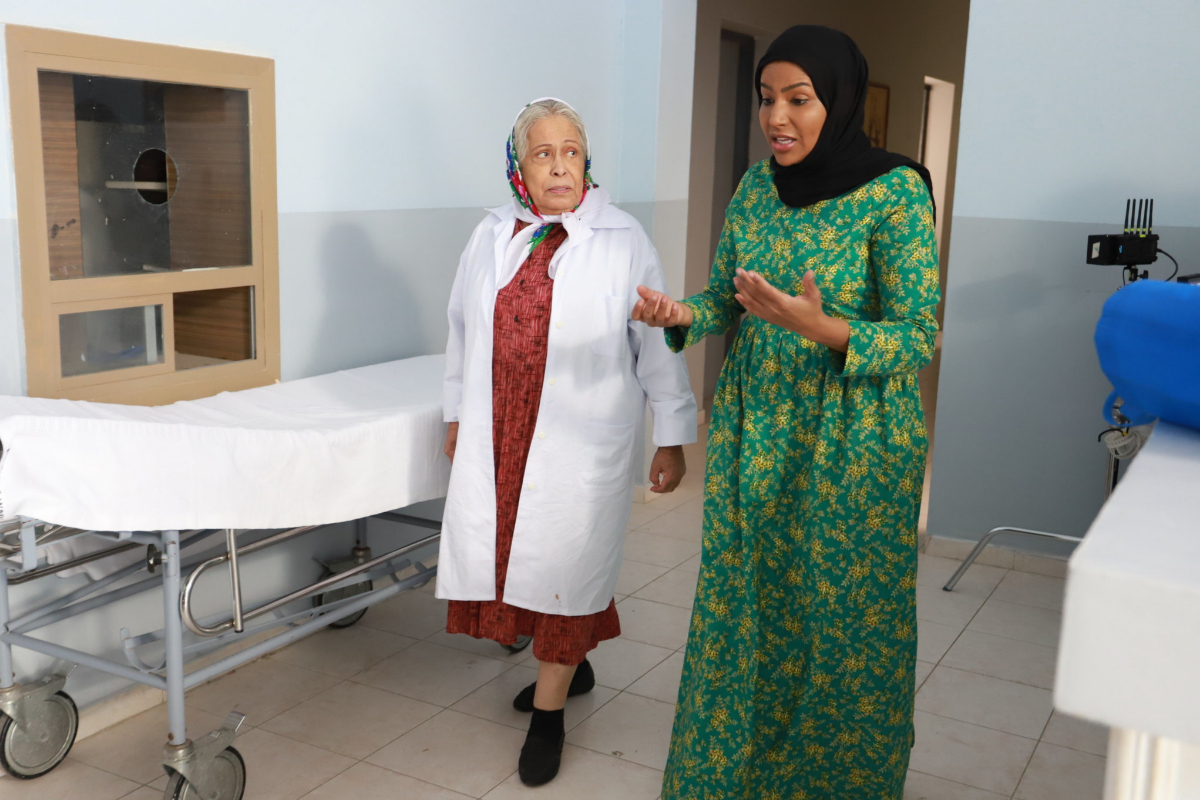The pandemic that has transformed the Muslim holy month of Ramadan has also disrupted one of its main dishes: the musalsalat (series, in Arabic). The spread of the coronavirus and growing public restrictions coincided with the filming of the main bets of television fiction for the most precious month for Arab networks . And, despite the express authorizations granted by the majority of governments to continue production, the small screen and its power to satiate and entertain fasting have suffered this year, victim - one more - of the limitations imposed by Covid -19.
"Only a handful of series have had to be postponed or have reduced their episodes due to the coronavirus crisis and its implications for recording sets," acknowledges EL MUNDO sources from MBC, a television conglomerate controlled by the Saudi Government with based in Dubai that offers one of the most competitive grills of the month , which ends this weekend with the celebration of Eid al Fitr .
The effects of the pandemic have deprived viewers of its dozen channels from five series . Economic paralysis has also wreaked havoc on advertising revenue at a key time for chain accounts . "But, clearly, the numbers of the hearings are greater than ever. Millions of people have stayed at home," admit from the network, which does not lose hope.
Unaware of the tribulations of confinement, the controversy of this cathodic Ramadan has been served precisely by two series of MBC that - according to its critics - are a tool for the normalization of relations with Israel , the hitherto enemy . In Makhraj 7 (Exit 7, in Arabic) - a kind of Tell me how it happened that recounts the reforms that shake the Saudi kingdom -, several scenes record the supposed social change towards the Israeli State. The plot begins when a father discovers his son playing virtually with an Israeli boy. The parent is furious when they learn that their offspring are dealing with the enemy , but other relatives consider it an opportunity for espionage or trade. The debate that then breaks out in the family has been the trigger for the controversy. "You say the Israelis are right and you want to do business with them?" Asks one of the protagonists. " The enemy is the one who does not appreciate that you are by his side, who curses you day and night, more than the Israelis, " replies his father-in-law, alluding to the Palestinians.
"The series shows two Saudi actors speaking frankly about the Palestinian cause. It is safe to say that there is a visible rift between some Saudis and Palestinians. Many Saudi nationalists have seen their flags and portraits of burned and trampled Saudi monarchs," he points out to this. Abdelaziz Alghashian newspaper, from the British University of Essex. "This has led to a very hostile perception towards the Palestinians in question. The negative feelings have spread to the Saudi-Israeli normalization discourse," admits the academic.
The television script has sparked rivers of ink among Arab viewers and has ended up reaching the offices of power. "Some Arab satellite channels have broadcast during this Ramadan some series that offend the Arab national narrative of the conflict and the robbery of Palestine and distort history," denounced the Palestinian Minister of Culture, Atef Abu Saif. His public censorship has been accompanied by the accusation of "serving the occupation" .
The second of the series that has generated a stir, also broadcast by MBC, portrays a Kuwaiti village where religious tolerance is exercised in 1948, when Israel declares independence and the Arab-Israeli wars begin. Umm Haroun (Aaron's mother, in Arabic) portrays " a Near East in which acceptance of the other was the norm, " the channel explains.
The series is developed around the romance of a Jew and a Muslim and vindicates the memory of the Jewish communities that, deeply rooted, then existed throughout the Arab world. A story that many have attributed to changing times, with Donald Trump's plan for the region and its proximity to the courts in Riyadh and Abu Dhabi. "Even since the Arab Spring in 2011 there was a feeling that Saudi Arabia and Israel shared a degree of common interest, if not in values, but in regional geopolitical visions such as Iran and Islamism to overcome the Palestinian cause as the great failure in the Middle East policies, as seen from Riyadh, "Kristian Coates Ulrichsen, an analyst at American Rice University, told this newspaper.
The controversy has once again underlined the use of Arab fiction as a powerful weapon of political propaganda in the hands of the Arab regimes. In recent years, for example, Egypt has been reducing the panorama of television production to focus on a company linked to military intelligence, which signs series glorifying the army's martyrs or trying to clean up the credit of a police apparatus accused of serious human rights violations.
"The content of television shows is carefully watched by governments and those who are authorized, especially during a peak time such as Ramadan, carry an implicit message of support for the authorities, " admits Ulrichsen. To offer perhaps a respite to the beleaguered audience, the Egyptian series El Nehaya (The End, in Arabic) imagines the world back in 2120. A dystopian reality in which Israel no longer exists. "Within each Arab, there is the idea of liberating any occupied Arab territory," argued its writer Amr Sami Atef. Fiction has not been without controversy either.
In accordance with the criteria of The Trust Project
Know more- Egypt
- Israel
- Covid 19
- Coronavirus
- Saudi Arabia
- Donald trump
Human Rights Coronavirus threat enters torture cell
Covid-19 Coronavirus or Chinese virus? A pandemic that has uncovered racism worldwide
Post-pandemic The defeat of the swastika: the possibility of a new Hitler

